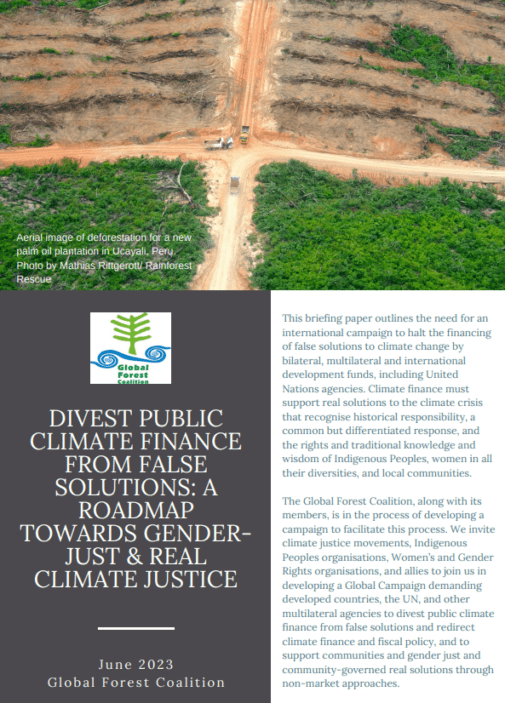Rio+20 agrees on outcome document
Admittedly I am totally surprised, but despite the tremendous chaos at this conference here the Governments at Rio+20 here seem to have all agreed on the attached outcome document yesterday, well in time for the High-level Carnaval that starts today.
The text consists of the text agreed until last Saturday and a lot of compromise texts crafted by the Brazilian Government the past days. Most texts are a rather bland repetition of what was already agreed upon, sometimes years ago, in other fora. I paste the forest and biodiversity texts below.
Some quick analysis: The forest text includes a reference to REDD but in a rather cool tone, saying “initiatives such as….”. As reported before, the G77 opposed this reference, but we understood in the corridors many developing countries were afraid to insist as they might lose their REDD support from Norway, which was strongly in favor of the text.
Btw., I sneaked in to watch the Forest Dialogue that was organized yesterday (the Brazilian social movements had called for a boycott as they felt the process was manipulated by the Brazilian Government) and it is noteworthy that a recommendation supporting REDD ended up at the almost last place after popular vote by the 5000 people present and people who voted through internet – only forest certification turned out less popular.
As I wrote before, most other forest texts are copied from the rather forestry sector dominated UN Forum on Forests. A controversial reference to the need to ban trade in illegally logged timber was changed in the rather clumsy text that they wanted to “promote trade in legally harvested timber” – please put the accent on legally if you quote this……
The biodiversity text is not too bad. The positive news is in all the pro-market references and references to things like innovative financial mechanisms that were removed from this text, at least from the biodiversity paragraph.
The only exception is the term ecosystem services, which was removed (except for a reference to IPBES and one old and probably overlooked reference in the oceans text) but the US insisted on ‘services provided by ecosystems’ in a few places.
It is also positive to note that the letter we sent as CBD Alliance seems to have had an impact, not only in terms of supporting those countries that opposed the commercialization of nature, but also in insisting on the intrinsic value of biodiversity (which ended up right at the beginning of the biodiversity text) and the fact that biodiversity is a cross-cutting issue: I counted 12 references to biodiversity in different parts of the almost 50 page document (plus 15 references in the biodiversity text itself) and no less than 25 references to ecosystems (plus 5 in the biodiversity paragraphs).
Also, the biodiversity text and several other parts of the text clear recognize the valuable contribution of Indigenous Peoples, local communities, small peasants and their knowledge and practices to sustainable development (sadly enough there is no special reference to the contribution of women in the biodiversity or forest texts, but there are clear references to the contribution of women in the overall text).
Having that said, the overall document is as bland as some of the food here (admittedly I am a vegetarian, so I might not get the best of Brazilian cuisine – but then, being vegetarian in Brazil is perhaps the same as being an ecologist in Brazil these days…..). There is hardly anything in the entire outcome document that was not already agreed upon in other intergovernmental meetings like the UN Forum on Forest and the Convention on Biodiversity. Also, there is still no recognition of the need to clearly define forests as a biologically diverse ecosystem, which means a lot of the forest texts could benefit monoculture tree plantations as well as real forests.
So while I think we could celebrate that some of the most evil proposals, like the imposition of the green economy on all countries (it is now just noted as ‘one of the tools” that some countries may want to apply to achieve the overarching goal of sustainable development and poverty eradication), were rejected, I would be the first one to emphasize that this conference definitely was not worth the money and CO2 emissions of 50.000 people coming here to block up poor Rio’s roads…..(and no, I would not advice to organize the Olympics here….certainly not 50 km from the centre!)
Simone Lovera
simone.lovera@globalforestcoalition.org







